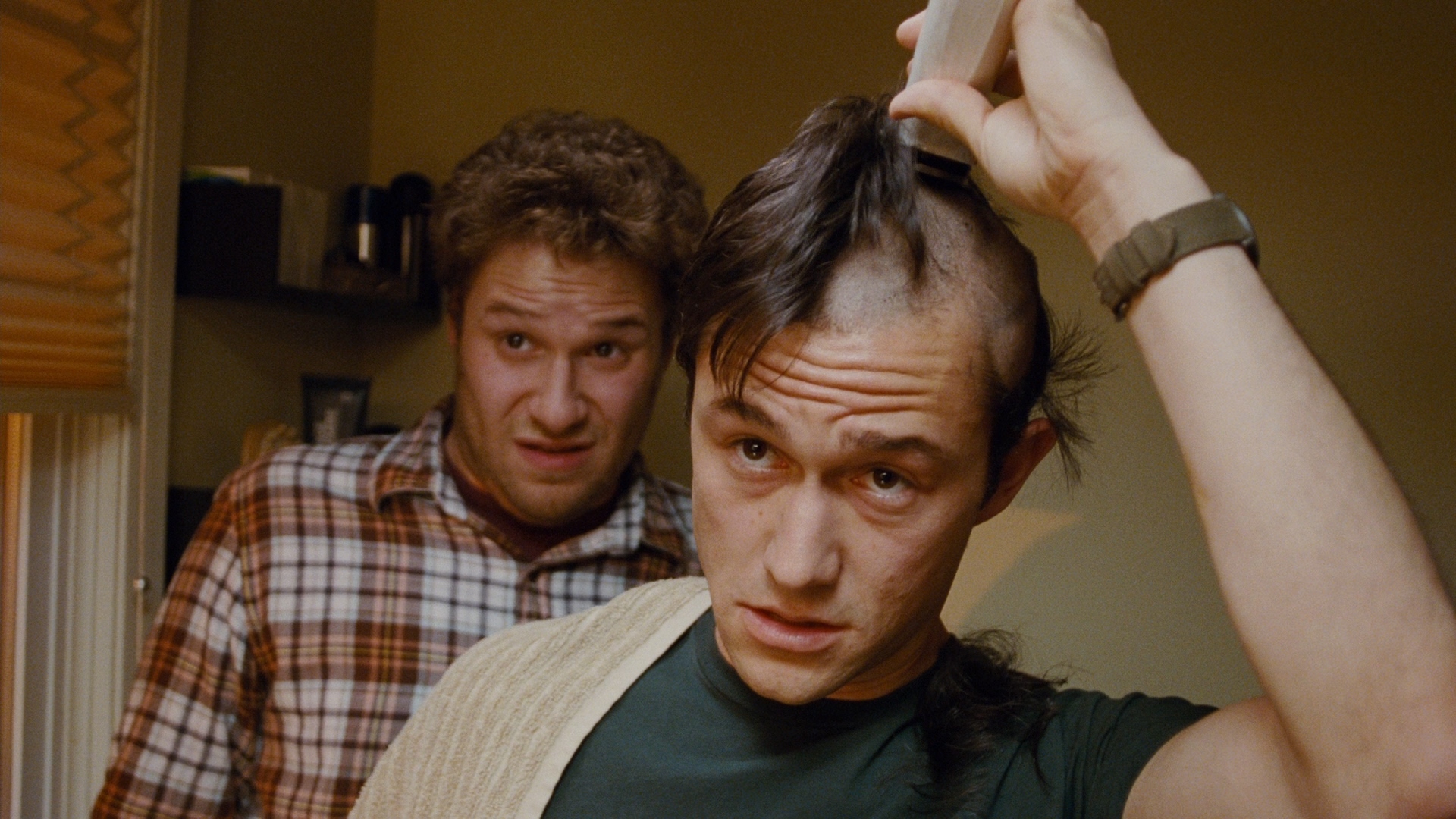
MPAA Rating: R | Rating: ★★★½
Release year: 2011
Genre: Comedy Director: Levine
Cancer is horrible. It is literally one’s own bodily systems destroying itself from the inside out. There’s seemingly very little humor in a situation involving tumors, radiation treatments, chemo therapy, and a strong potential of death. Yet the comedy 50/50 finds humor in a humorless situation.
Adam (Joseph Gordon-Levitt) is a 27-year-old working in public radio in Seattle who develops an unusual back pain. He ends up in an oncologist’s office, who informs him of the devastating news: he has a rare form of spinal cancer. Chemo therapy has to begin immediately. Some quick research on WebMd reveal that Adam’s chances are 50/50. Adam is left reeling.
Adam has a variety of support around him in this difficult time, each of whom offers a very different approach. His best friend Kyle (Seth Rogen, who is the real life friend of 50/50‘s writer and cancer survivor, Will Reiser) is a lovable goofball who does his best to be a source of encouragement. His mother (Angelica Huston) is overbearing and worrisome, becoming a paradoxical source of stress and comfort for Adam. His girlfriend, Rachael (Bryce Dallas Howard), already seems aloof before the diagnosis, and increasingly reveals that she doesn’t have what it takes to take care of Adam in his time of need. A fellow cancer patient (Philip Baker Hall) both provides philosophical insights and pot-filled desserts for his younger cancer compatriot. His young and attractive therapist, Katherine (Anna Kendrick), does her best to help Adam navigate the grief and stress while confronting the awful reality of the situation. Will Reiser’s script, while not without its cliche comedy elements, contains beautiful moments of truth in its central characters’ interactions. The friendship between Adam and Kyle is both hilarious and moving. The frustration with Rachael is palpable, while the romantic tension with Katherine is cute and authentic.
While 50/50 has a higher level of raunchiness than I expected–though it is a Seth Rogen film, so perhaps that was to be expected–I found it surprisingly affecting by its final act. I just turned 27 myself, I grew up in the Seattle area, and I’ve been told I bear a not-too-slight resemblance to Mr Gordon-Levitt, so perhaps my empathy level was especially high. I’ve also had an experience with the possibility of a spinal tumor, though through my son. Like Adam, that experience brought out a community of people around us who offered their support and love in any way they could. There were people praying for us, people visiting us, people sending us messages of hope and love, people sitting with us in the hospital at two in the morning.
When Job lost everything and found himself lying in a pile of ashes, three friends came to visit in his grief. While their later words ultimately proved to be unhelpful, their initial act was a beautiful gesture of comfort:
When Job’s three friends, Eliphaz the Temanite, Bildad the Shuhite and Zophar the Naamathite, heard about all the troubles that had come upon him, they set out from their homes and met together by agreement to go and sympathize with him and comfort him. When they saw him from a distance, they could hardly recognize him; they began to weep aloud, and they tore their robes and sprinkled dust on their heads. Then they sat on the ground with him for seven days and seven nights. No one said a word to him, because they saw how great his suffering was.
This is the power of being with. They came, they wept, and they sat. Despite Kyle’s obsession with trying to sleep with women, Adam’s mother’s overbearing spirit, and Katherine’s awkwardness and inexperience as a therapist, all prove to be with Adam. We need others to be with us in our pain. They offer you a sense of hope, allowing you to know that you are not alone, that your suffering is being shared with those around you. They are the ones in the waiting room.
IMDB Listing: http://www.imdb.com/title/tt1306980/